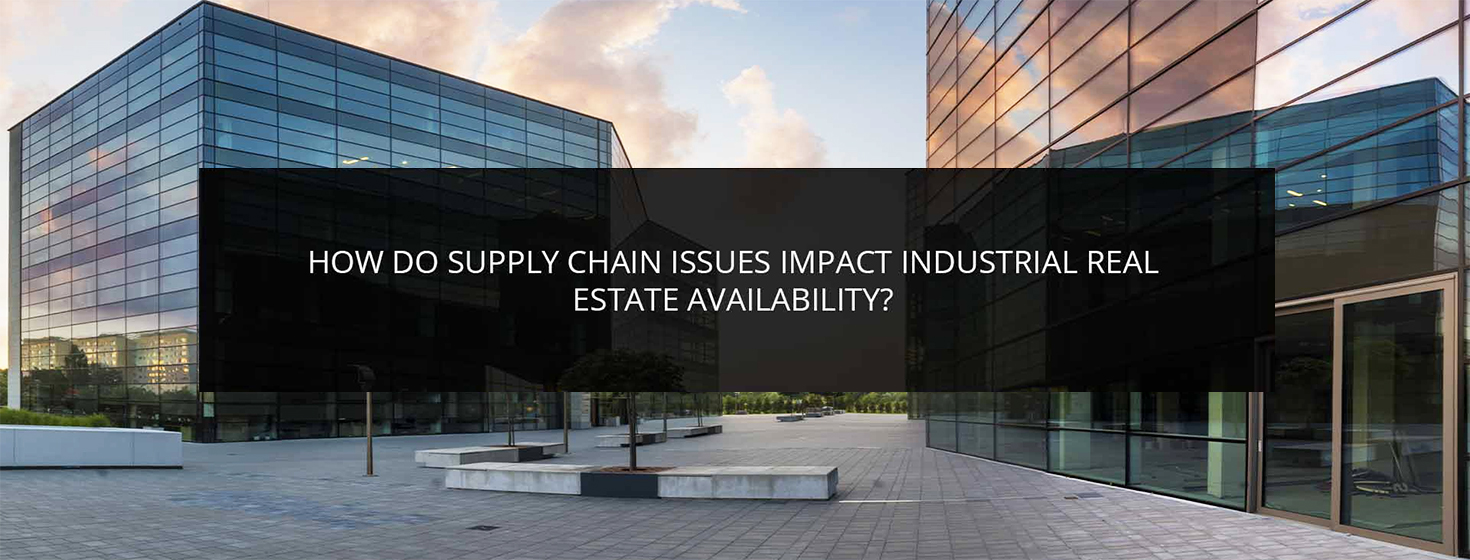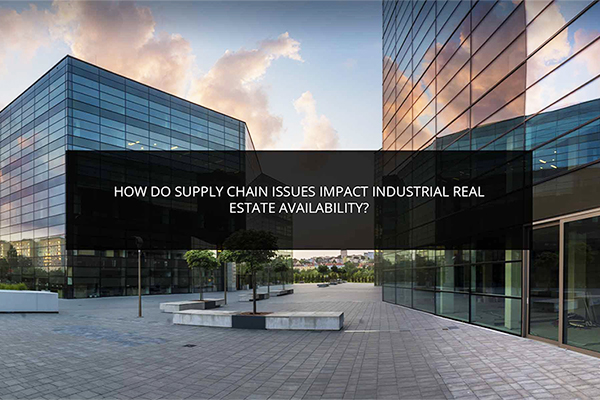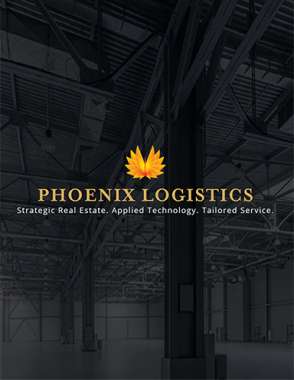How Do Supply Chain Issues Impact Industrial Real Estate Availability?

Although the global supply chain has shown signs of improvement in recent months, years of supply chain volatility have created a lasting impression on industrial real estate.
Supply Chain and Industrial Real Estate
The landscape for industrial properties looks very different than it did several years ago, largely due to continuous adjustments within the industry in response to major world events.
A U.S. – China trade war, a global pandemic, and worsening natural disasters have all played some role in disrupting the supply chain and, consequently, shaping the industrial sector.
Although the global supply chain has shown signs of improvement in recent months, years of supply chain volatility have created a lasting impression on industrial real estate.
The Relationship Between Supply Chain and Industrial Real Estate
Some supply chain effects on the industrial market were good for stakeholders in this industry, and others were less so. Here are some of the top lasting issues stemming from long-term supply chain upheaval:
Lack of Building Materials
With industrial vacancy still at record lows, industry stakeholders hope to erect new facilities to help meet demand. But that’s easier said than done in the current market. A shortage of building materials has plagued the market since early in the pandemic, as various contributing factors combined to create a perfect storm of disruption.
Building materials currently fall into one of two categories:
- Virtually unavailable. Some essential materials - like roofing materials, dock doors, and steel infrastructure components - have extensive lead times, making it difficult to complete industrial projects on time. Until these materials become more accessible, it will be difficult for developers to deliver new inventory at a predictable and reasonable pace.
- Available. Other materials, such as glass, plastic, cement, electrical components, paint, and dock equipment will be easier to come by, though they may also have longer-than-usual lead times.
Even readily available materials have increased in price, with some estimates placing building material costs nearly 20% higher on average year-over-year. At Phoenix Investors, we’ve noticed a marked rise ranging between 20-40%, depending on the specific material type.
Higher Inventory Levels
The pandemic brought an overwhelming demand for retail goods - specifically items purchased online. Unfortunately, existing Just-in-Time inventory management models weren’t up to the task, and retailers worldwide faced unprecedented stockouts while their suppliers couldn’t get raw materials to restock them.
Businesses have begun to carry higher levels of inventory (known as safety stock) to avoid repeating these circumstances. For example, a retailer or manufacturer may carry two months’ worth of inventory to meet sales or production volumes but then store enough inventory or materials to last another two months. This trend has filled U.S. warehouses to burst and continues to drive significant demand for new industrial facilities.
Progress on Reshoring
Reshoring - or moving production assets from overseas to U.S. soil - has been popular in concept and unpopular in practice for more than a decade. This inaction was because parts and completed goods sourced overseas traditionally have cost benefits that have outweighed manufacturing domestically for many businesses. However, that tide began to shift in 2020 when ports closed worldwide, and retailers couldn’t get inventory and materials from overseas suppliers.
Many businesses consider the higher labor and real estate costs in the U.S. worthwhile if they can receive inventory orders in a few days by truck or rail instead of waiting for international shipments. Reshoring efforts started in 2020 are coming to fruition now and contribute to the low vacancy rate in industrial real estate.
These are only a few of the supply chain issues currently impeding renovations and new developments in industrial real estate. If you need to find valuable logistics space in the current market, working closely with an experienced industrial real estate broker can help.
ABOUT PHOENIX INVESTORS
Founded by Frank P. Crivello in 1994, Phoenix Investors and its affiliates (collectively “Phoenix”) are a leader in the acquisition, development, renovation, and repositioning of industrial facilities throughout the United States. Utilizing a disciplined investment approach and successful partnerships with institutional capital sources, corporations, and public stakeholders, Phoenix has developed a proven track record of generating superior risk-adjusted returns, while providing cost-efficient lease rates for its growing portfolio of national tenants. Its efforts inspire and drive the transformation and reinvigoration of the economic engines in the communities it serves. Phoenix continues to be defined by thoughtful relationships, sophisticated investment tools, cost-efficient solutions, and a reputation for success.
More Content from Phoenix Logistics
Article Topics
Phoenix Logistics News & Resources
4 Best Practices for Online Order Fulfillment In 2023 Is Industrial Real Estate Recession-Proof? 9 Tips for Offsetting Rising Parcel Rates Tips for Retaining Your Peak Season Temp Labor The Great Decoupling and What It Means for Industrial Real Estate How Does the Inflation Reduction Act Impact Industrial Real Estate? Not in My Backyard: Warehouse Edition More Phoenix LogisticsLatest in Transportation
Baltimore Bridge Collapse: Impact on Freight Navigating Amazon Logistics’ Growth Shakes Up Shipping Industry in 2023 Nissan Channels Tesla With Its Latest Manufacturing Process Why are Diesel Prices Climbing Back Over $4 a Gallon? Luxury Car Brands in Limbo After Chinese Company Violates Labor Laws The Three Biggest Challenges Facing Shippers and Carriers in 2024 Supply Chain Stability Index: “Tremendous Improvement” in 2023 More Transportation













